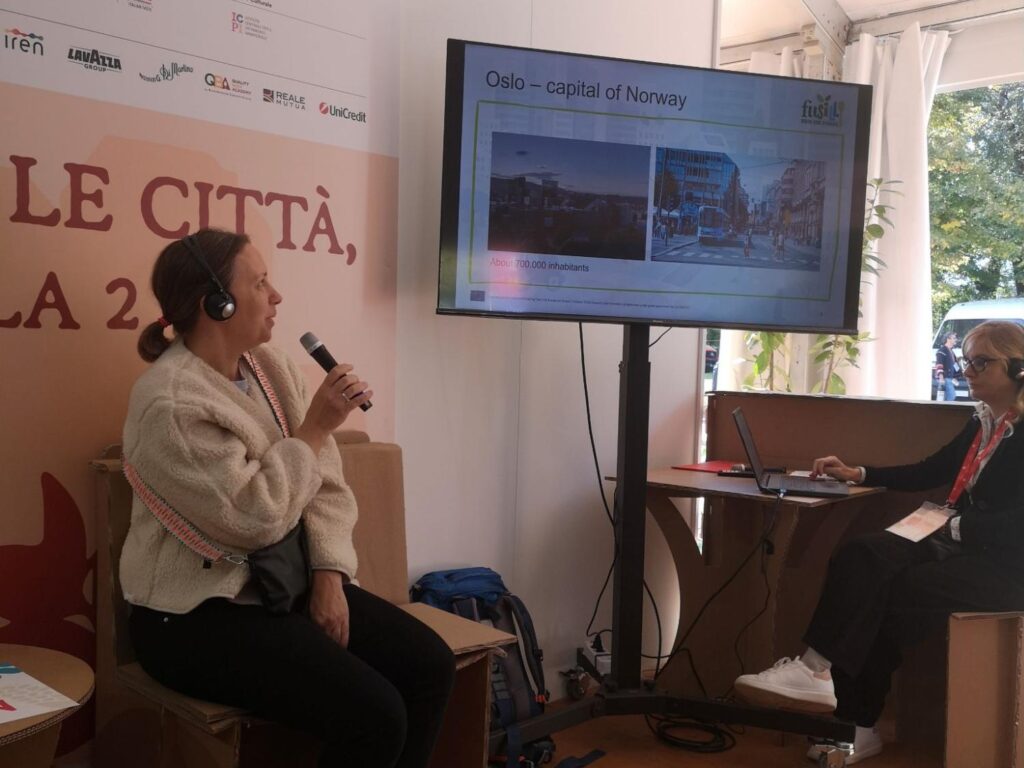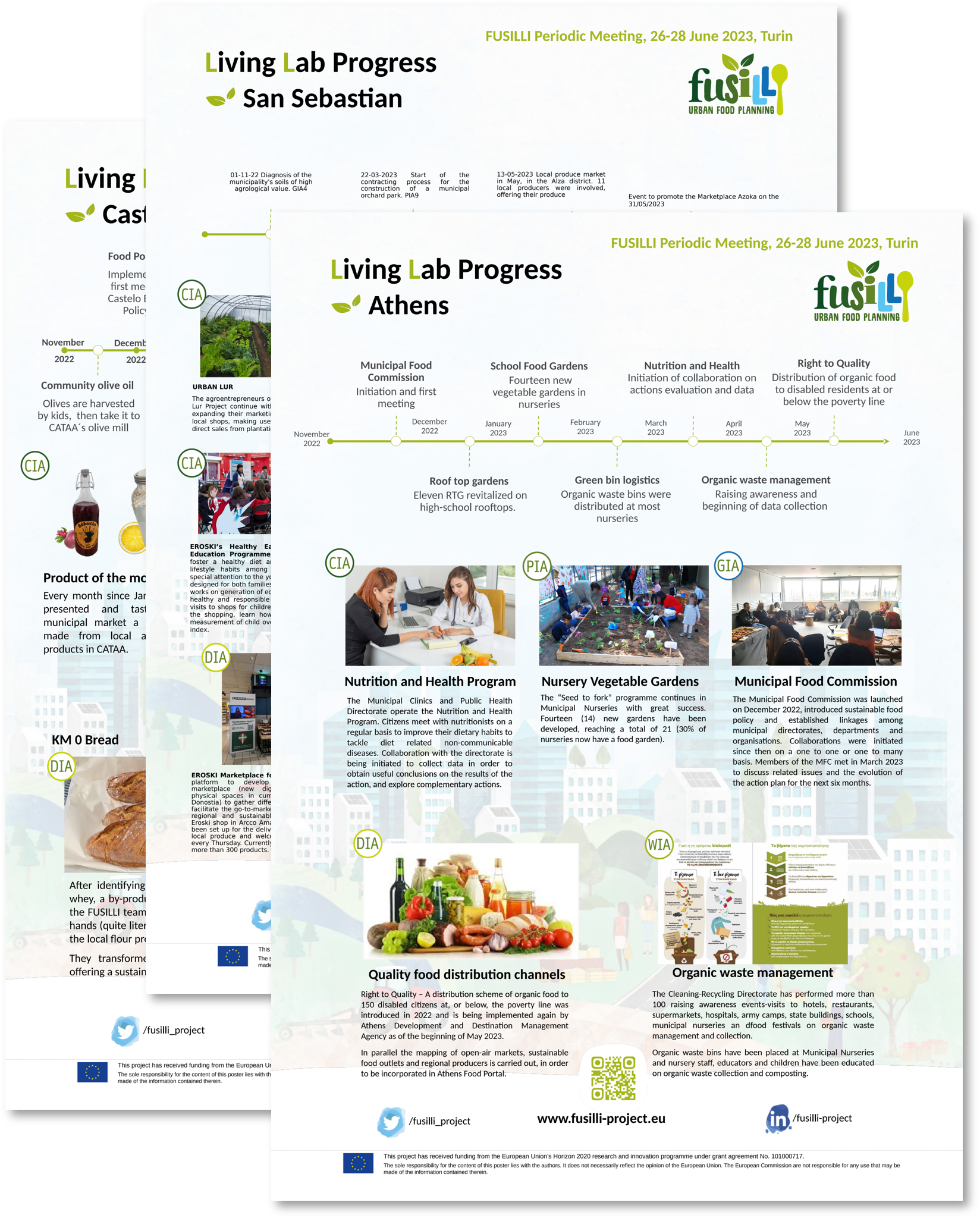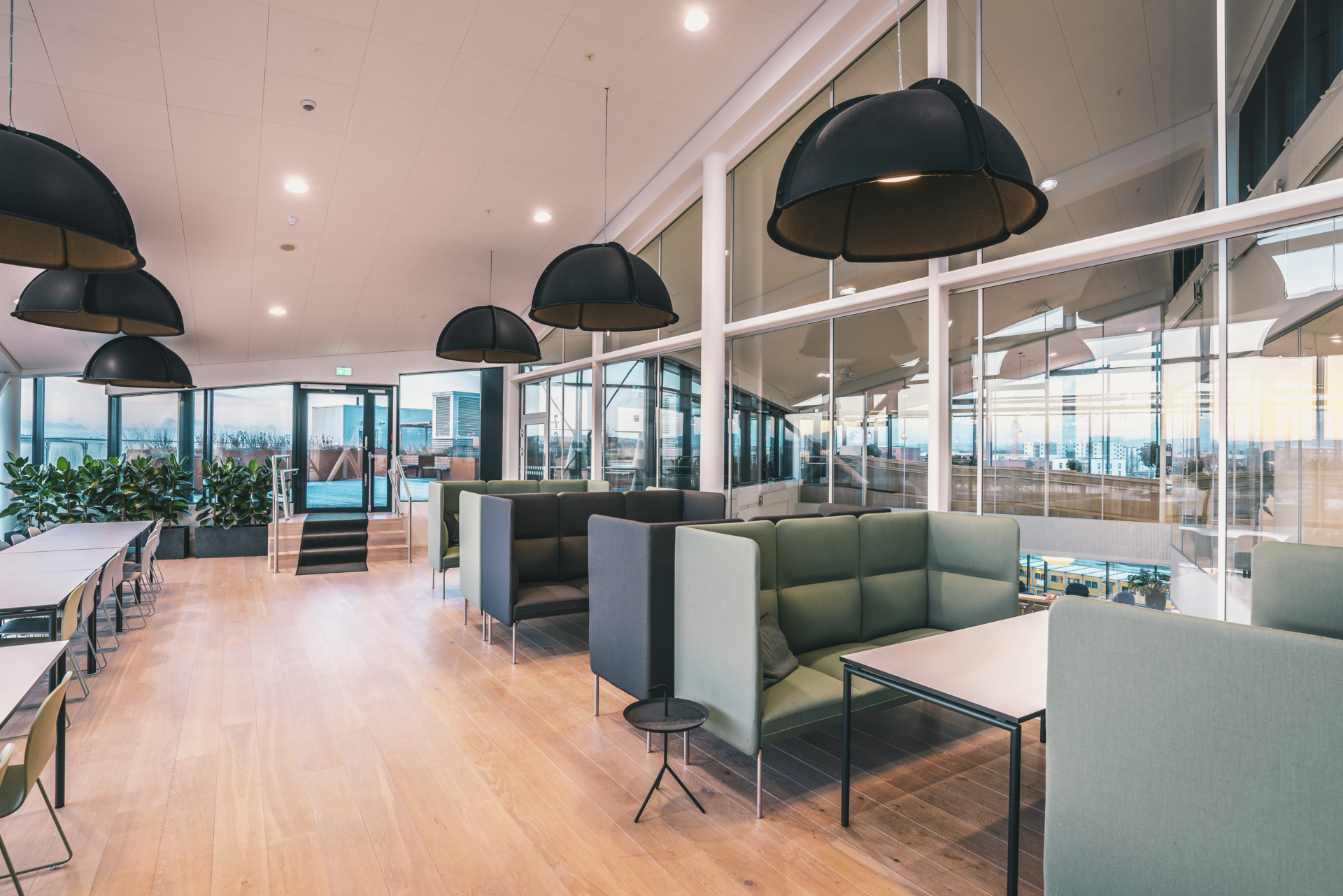Oslo Living Lab Outcomes and Tools
The FUSILLI Oslo Living Lab has developed various outcomes and tools over the 4 years of project life time between 2021-2024. These city specific Living Lab outcomes and tools can be found on this page
Oslo's Roadmap
See their complete LL Roadmap
Oslo's Evaluation of Innovative Actions
See the evaluation of their implemented actions defined in the action plan
Oslo's Food Action Plan
Read their complete Urban Food Action Plan
Summary - Urban Food Action Plan - English
Read the LL's Urban Food Action Plan in English
Summary - Urban Food Action Plan - Norwegian
Read the LL's Urban Food Action Plan in the local language
Oslo is the capital of Norway and the country’s largest city with just over 700,000 inhabitants. Since 2015, Oslo has a City Government cooperation between the Labour Party, the Green Party and the Socialist Left Party. Their vision is “a greener, warmer and more creative city with room for everyone” (Municipal plan, 2018). Oslo’s politicians are ambitious in transforming the food system, especially in relation to climate friendly food policies such as reducing meat consumption and food waste.
Oslo FUSILLI Living Lab – Karvesvingen 3 demonstration site
Oslo’s choice of its FUSILLI Living Lab represents one of many arenas for change in transforming the food system: the work place. The work place is where people usually eat 1 out of 3 daily meals. Mostly lunch, but also breakfast and/or dinner, depending on the life situation and working hours. Around 750 people work in Karvesvingen 3 (see image above), the building where Oslo’s Living Lab is located. They all represent a variety of professions, gender and ages – aspects that have an influence on people’s diets.
Earlier insights indicate that people are strongly influenced by their co-workers, employers and the actual meal service offerings. In our Living Lab, we will explore roles, possibilities and challenges associated with healthy and sustainable eating at work. We also want to implement policies and actions in the Karvesvingen 3 Living Lab to produce useful experiences for further implementation in the City of Oslo and elsewhere in Norway and Europe.
We will explore opportunities and barriers to transforming the food system through the work place, which is an important arena for new impulses and individual behavioural change. We will share our results with our networks of real estate companies, meal service providers and employers in Oslo, Norway and Europe.
Main objectives and planned implementations
For the City of Oslo:
- Reduce food waste at the municipality of Oslo’s own enterprises by 50 per cent by 2030, and support stakeholders who are helping to reduce food waste in Oslo.
- Introduce vegetarian food as the standard option at municipal events.
- Halve meat consumption at municipality of Oslo canteens and institutions by the end of 2023.
- Always offer a satisfactory vegan alternative.
For Sodexo Norway (Meal Services & Facility Management Company):
- Climate label our menus (Klimato) to nudge behavioral change
- Reduce use of red meat
- Replace dairy products with plant-based products
- Increase proportion of plant-based meals up to 30% of our food selection by 2025
- Increase use of Future 50 Foods (WWF and Knorr) – for healthy people and a healthier planet
- Reduce food waste
- Offer 24-hour meal service / Grab&Go healthy convenience through smart fridges and digital solutions
Oslo’s Demo sites
Research questions:
- What is the role of real estate companies, meal service providers and employers in transforming the food system?
- What is the significance and potential in eating healthy and sustainably at work in relation to people’s diets?
- What is and what could be the relationship between employers and workers with respect to healthy and sustainable diets?
Further Local Partners
- County Governor of Oslo and Viken
- Höegh Real Estate
- Sodexo Norway
- City of Oslo (tenant)
- Include Research Center
Links to FUSILLI pages in Norwegian
Contact
Line Tveiten
Adviser – Sustainable food
Agency for Urban Environment – City of Oslo






